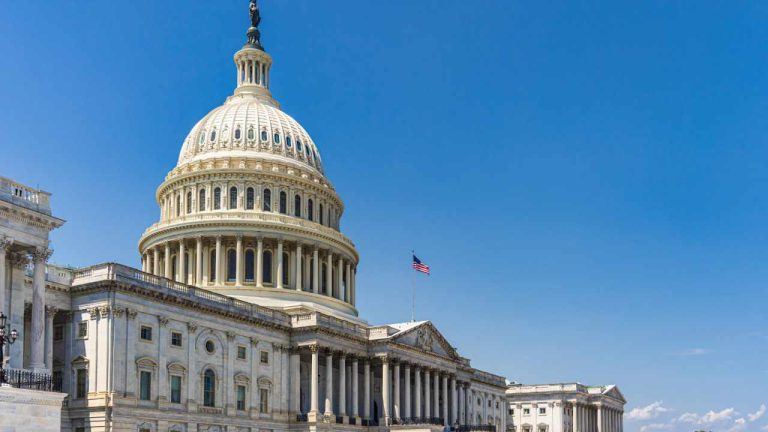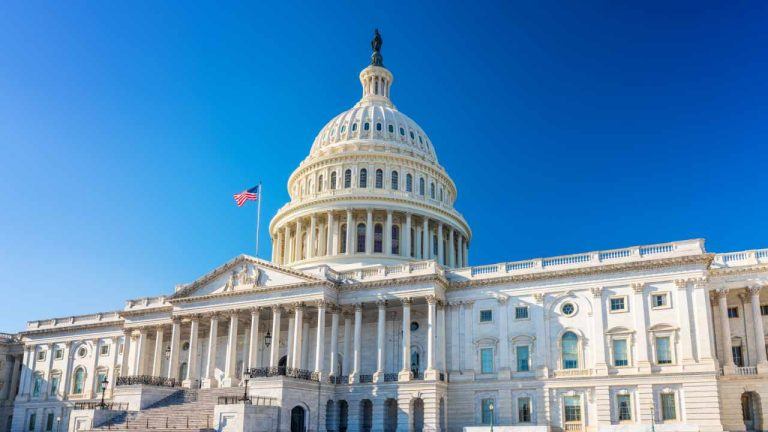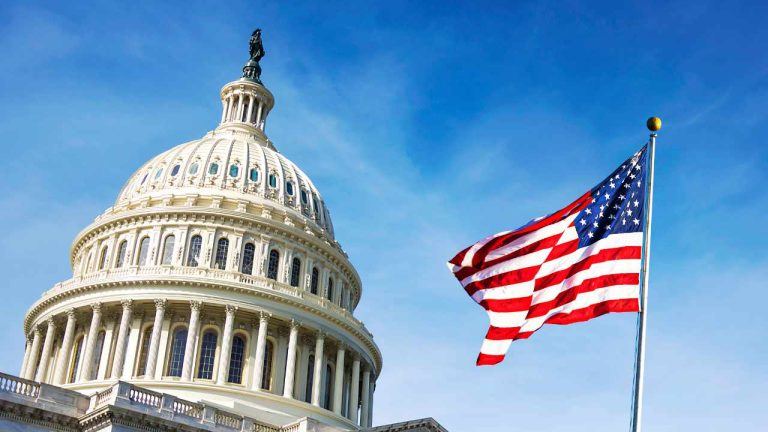 House Financial Services Subcommittee Chairman French Hill emphasized the need to understand decentralized finance technologies during a hearing. He criticized the Biden administration’s regulatory approach and urged Congress to keep discussions open on supporting defi innovation. Hill noted that current regulatory frameworks were created for a system reliant on centralized intermediaries, not the decentralized, peer-to-peer […]
House Financial Services Subcommittee Chairman French Hill emphasized the need to understand decentralized finance technologies during a hearing. He criticized the Biden administration’s regulatory approach and urged Congress to keep discussions open on supporting defi innovation. Hill noted that current regulatory frameworks were created for a system reliant on centralized intermediaries, not the decentralized, peer-to-peer […]

The AI industry is split over new legislation in California that would implement a sort of emergency stop in AI systems.
Industry figures are divided on a contentious Californian artificial intelligence bill that passed on Aug. 28.
The new legislation will compel AI firms to implement new safety protocols, including an “emergency stop” button for AI models.
The Safe and Secure Innovation for Frontier Artificial Intelligence Models Act (SB 1047) passed the California Senate 29–9 on Aug. 28.

Crypto VC giant a16z claims the AI legislation will “burden startups because of its arbitrary and shifting thresholds.”
A California bill requiring AI developers to put up safety protocols to stop “critical harms” against humanity has caused a stir among the Silicon Valley’s tech community.
California’s “Safe and Secure Innovation for Frontier Artificial Intelligence Models Act," also known as SB 1047, would require AI developers to implement safety protocols to prevent events such as mass casualties or major cyberattacks.
It was proposed by California Democratic legislators in February.

A Harris administration could be younger and more pragmatic and bring “a fresh perspective toward crypto,” some believe.
The campaign of United States presidential candidate and sitting Vice President Kamala Harris has given several signals that her administration would benefit the crypto industry.
As Harris continues to climb in the polls, industry observers are beginning to ask more questions.
Would a Harris presidency include younger advisers and political appointees who are more open to cryptocurrencies and blockchain technology — unlike the old guard of Biden, Yellen and Gensler?
 Russian President Vladimir Putin has enacted legislation to formally regulate the cryptocurrency mining sector in Russia, with the law set to take effect in November. This legislation establishes a regulated framework for mining operations, limiting participation from entities associated with electricity and prohibiting the promotion of cryptocurrencies. It also allows the circulation of mined cryptocurrency […]
Russian President Vladimir Putin has enacted legislation to formally regulate the cryptocurrency mining sector in Russia, with the law set to take effect in November. This legislation establishes a regulated framework for mining operations, limiting participation from entities associated with electricity and prohibiting the promotion of cryptocurrencies. It also allows the circulation of mined cryptocurrency […] The French financial regulatory authority has begun accepting applications for authorization as a crypto asset service provider under the European Markets in Crypto-Assets (MiCA) Regulation, ahead of its implementation in December 2024. This regulation mandates prior authorization for market participants offering crypto asset services in the EU, with strict adherence to anti-money laundering, cybersecurity, and […]
The French financial regulatory authority has begun accepting applications for authorization as a crypto asset service provider under the European Markets in Crypto-Assets (MiCA) Regulation, ahead of its implementation in December 2024. This regulation mandates prior authorization for market participants offering crypto asset services in the EU, with strict adherence to anti-money laundering, cybersecurity, and […] U.S. senators have introduced legislation to empower the Secret Service to combat cybercrimes involving digital assets. This legislation addresses the growing use of cryptocurrencies for illicit activities and mandates the Government Accountability Office to evaluate law enforcement’s effectiveness in tackling money laundering in cyber crimes. New Bill Targets Cybercrime and Money Laundering with Digital Assets […]
U.S. senators have introduced legislation to empower the Secret Service to combat cybercrimes involving digital assets. This legislation addresses the growing use of cryptocurrencies for illicit activities and mandates the Government Accountability Office to evaluate law enforcement’s effectiveness in tackling money laundering in cyber crimes. New Bill Targets Cybercrime and Money Laundering with Digital Assets […] Arthur Hayes, co-founder of Bitmex, argues that the upcoming U.S. presidential election presents a unique opportunity for crypto advocates to leverage their voting power. With both major political parties vying for a narrow margin of swing voters, Hayes believes the crypto community could play a decisive role in determining the outcome. Arthur Hayes on Crypto’s […]
Arthur Hayes, co-founder of Bitmex, argues that the upcoming U.S. presidential election presents a unique opportunity for crypto advocates to leverage their voting power. With both major political parties vying for a narrow margin of swing voters, Hayes believes the crypto community could play a decisive role in determining the outcome. Arthur Hayes on Crypto’s […] The Senate Committee on Agriculture, Nutrition, and Forestry held a hearing on Wednesday where Chairwoman Senator Debbie Stabenow stressed the urgent need for robust regulation in the crypto market. The discussion focused on investor protection, market integrity, and the necessity of federal oversight for digital commodities like bitcoin and ethereum. Senate Committee Highlights Need for […]
The Senate Committee on Agriculture, Nutrition, and Forestry held a hearing on Wednesday where Chairwoman Senator Debbie Stabenow stressed the urgent need for robust regulation in the crypto market. The discussion focused on investor protection, market integrity, and the necessity of federal oversight for digital commodities like bitcoin and ethereum. Senate Committee Highlights Need for […]

Governor Roy Cooper was slammed for not putting “partisan politics aside” to support a law that would benefit all North Carolina residents.
North Carolina Governor Roy Cooper has vetoed a bill banning the state from implementing a Federal Reserve-issued central bank digital currency despite receiving near-unanimous support in the House and Senate.
Cooper, who has faced criticism for making a politically motivated decision, explained in a June 5 statement that House Bill 690 was too “premature, vague, and reactionary” to sign into law.
Cooper’s veto followed a lopsided 109-4 vote in the House and a 39-5 vote in the Senate in late June.